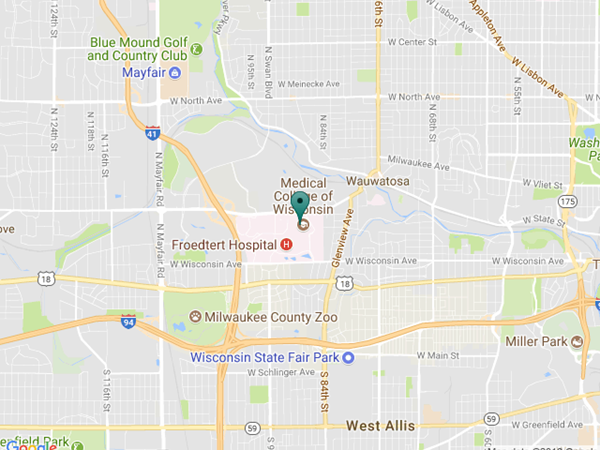Max McGee Diabetes Research Center
Welcome to The Max McGee Diabetes Research Center at the Medical College of Wisconsin and Children's Wisconsin.
Packers great Max McGee and his wife Denise know intimately the challenges of living with diabetes. Diabetes is prevalent in Max's family. His brother fought diabetes in his lifetime, and today Max and Denise's younger son Dallas lives every day with this life-threatening disease. The McGees wanted to make a difference. They wanted a cure not just for their own son, but for the 1.6 million American people living today with Type 1 diabetes. Their hope was to secure support for the creation of a new, state-of-the-art diabetes research center.

About the Max McGee Diabetes Research Center
Contact Us
The Max McGee Diabetes Research Center
Medical College of Wisconsin
8701 Watertown Plank Rd.
Milwaukee, WI 53226
Mark Roethle
mroethle@mcw.edu
(414) 955-7351
(414) 955-6663 (fax)
Study Coordinator
T1dinfo@mcw.edu
(414) 955-4903
(414) 955-6663 (fax)



 Martin J. Hessner, PhD
Martin J. Hessner, PhD Max McGee, the famous Green Bay Packer, was most remembered for scoring the first touchdown in Super Bowl History during Super Bowl I. He played in two Pro Bowls and on five World Championship teams.
Max McGee, the famous Green Bay Packer, was most remembered for scoring the first touchdown in Super Bowl History during Super Bowl I. He played in two Pro Bowls and on five World Championship teams.